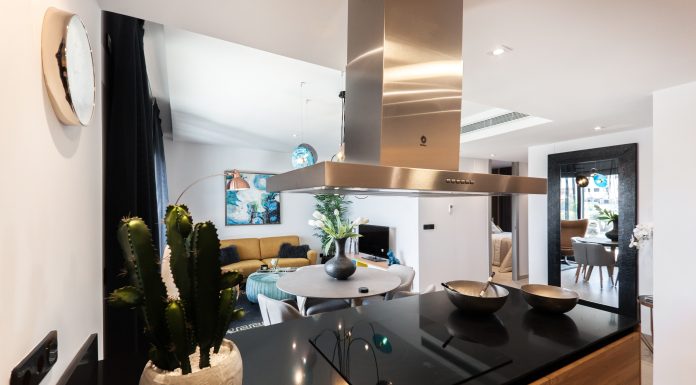Imagine being the very first person to live in your new construction home.
Any buyer shopping for a home today, in any market and at any price point, is likely to come across a new construction home for sale. The sellers are both large national builders and smaller local developers. Some homes are for sale as a part of a subdivision, while others are one-off homes.
But is a new construction home the right path for you? Here are five factors you should keep in mind.
New homes may not be listed in your local MLS
Unlike a regular seller who lists their home with a local real estate agent, homebuilders often have their own sales employees working for them on site. They do this to have more control and to cut costs.
What does this mean for buyers? Mostly, it may mean the homebuilder isn’t a member of the local MLS. As a result, the homes may not show up in your agent’s MLS search.
The builder may be more apt to advertise online, in the paper or with billboards. So if you’re interested in newly built homes, work with your agent to make sure you’ve identified all the possibilities.
New homes are often sold before they’re built
A builder will generally get financing lined up, and map out both a construction and a sales process. This means they’ll try to sell as many homes as possible before they’re even built.
To accomplish this, they’ll build out model homes and allow buyers to go in and review floor plans, fixtures and finishes while the homes are under construction. Depending on the state, builders need to get through some of the approvals processes before they can actually start signing contracts.
For the most part, you can get a sense of what your new home would look and feel like, and where it will be located in the community. Ready to move forward? You’ll likely have to put down a deposit, from a few thousand dollars to 10 per cent of the purchase price.
Be aware that even if there are 100 homes in the community, they won’t all be available at once. Homebuilders tend to release the homes in phases. If the first five homes sell quickly at the asking price, and the market continues to do well, the builder can raise the prices on the second or third phase.
Also, the sales cycle for a new community can take years. The last phase could end up being priced 10 per cent or more than the first, simply because the real estate market has appreciated.
The first buyers may get the best discounts
A home builder, especially early in the sales process, wants to get a few homes under contract quickly. If the builder can announce they have 10 homes under contract in a few months, the project can seem more desirable to future buyers.
Also, builders like to go back to their lenders with positive news about the project and their investment. To do this, they need early buyers to sign contracts.
For buyers, this means that early in the sales process there could be room to negotiate the price down. But with the reward, there is a potential risk. By being an early buyer, you’re committed to the project. If for some reason sales don’t manifest, or you don’t want to move ahead before the home is built, you risk losing your down payment. For example, right after the previous housing downturn, some buyers were stuck under contract on new homes where sales had stalled.
Builders don’t have a personal attachment to the home
A typical seller has lived in their home for many years, and raised their family or built memories there. So when it’s time to sell, the seller may experience all kinds of issues, questions and uncertainties, which can come out in the negotiation and purchase process.
The seller may unconsciously price the home too high because they’re not ready to emotionally detach from it. They may want to know more about you, or what your plans are for the property. If given a choice between two buyers, the seller may pick one over the other for non-financial reasons.
With a home builder, it’s just a numbers game. They’re focused more on spreadsheets than sentiment. They want to make sure you’re qualified and can get a loan. They set the prices based on their inventory, though there may be a little room for negotiations.
Discounts may be available in the form of upgrades
Is the project you’re interested in near the end of its sales cycle, with many homes already sold? If so, the builder maybe a little more willing to negotiate with you — not so much on price, but on upgrades. If they reduce the price on your home and the sale closes, then that sale price becomes public record. But if they offered you an upgrade package (hardwood floors instead of carpet, or higher-end appliances), there isn’t any way to track that.
What could amount to thousands of shillings in upgrades could end up being a better deal than simply getting a price reduction.
For many first-time buyers, new construction home could be a great idea.








